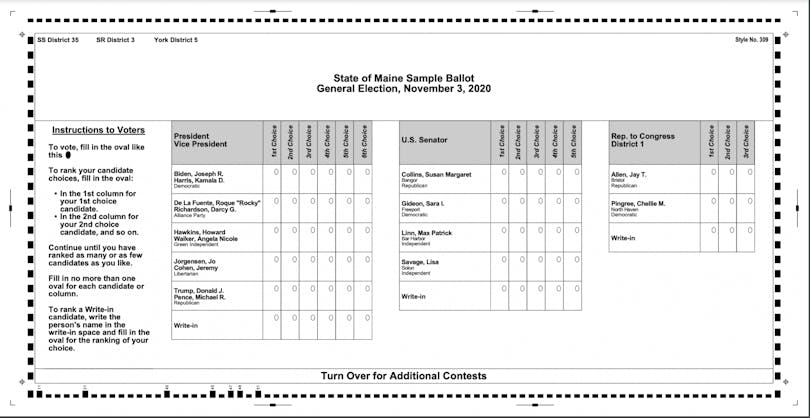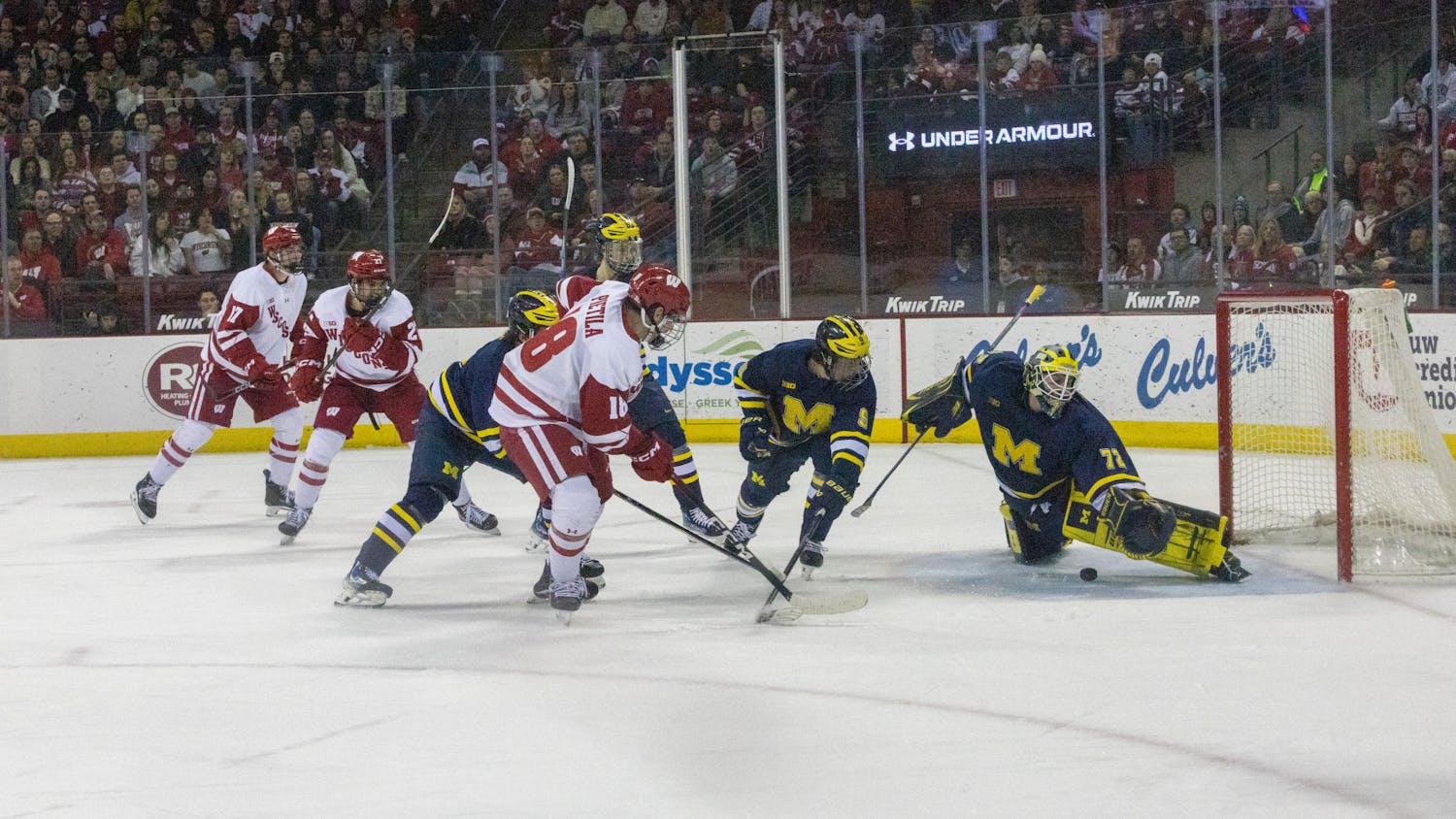On Wednesday, a bipartisan group of state lawmakers proposed implementing ranked-choice voting in Wisconsin’s federal elections.
The proposal, known as “Final Five” voting, was announced by Sen. Jeff Smith, D-Brunswick, alongside three of his colleagues in the state legislature, two of whom are Republicans. The proposal would apply only to federal elections for Senators and Representatives in U.S. Congress.
Currently, candidates compete in partisan primary elections, where the sole winner of each primary advances to the general election ballot. The “Final Five” proposal, however, would eliminate partisan primaries and replace them with a single nonpartisan primary in which candidates from every party would compete.
The top five vote-getters from the nonpartisan primary would then advance to the general election. Under the current voting system, voters are only able to choose one candidate out of the five. However, under the “Final Five” voting system, voters would be able to rank each candidate from one to five based on their preferences.
If a single candidate is ranked first on a majority (50% or more) of election night ballots, that candidate will then win the election. However, if no candidate gets a majority, the candidate with the lowest number of votes is eliminated, and the second choices of those who voted for the eliminated candidates are then distributed between the remaining candidates. This runoff process continues until one candidate gets a majority of the votes and wins the election.
Smith and his colleagues argue that “Final Five” voting will force candidates to compromise on issues and allow Wisconsinites more freedom when choosing candidates for congressional elections.
“Politics have become increasingly more polarized, which makes it hard for our congressional leaders to get anything done,” Smith said in a statement on Tuesday. “‘Final Five’ voting will update our electoral system and help fix the country’s political gridlock.”
The “Final Five” proposal is also backed by Democracy Found, a Wisconsin-based group which promotes ranked-choice voting in the state. The group’s co-founder, Austin Ramirez, says that changing how Wisconsin votes is key to bipartisanship in Congress.
"It's not even that we've got the wrong people representing us in D.C., but that their incentive structure is such that they benefit from dividing and fighting more than they do from legislating and getting things passed," Ramirez told the MIlwaukee Journal-Sentinel.
Ranked-choice voting has been successfully implemented in other states. In 2020, Maine became the first state to use ranked-choice voting in a presidential election. Maine will soon be joined by Alaska, which will use ranked-choice voting for the first time in all 2022 statewide elections and again during the 2024 presidential election.

An example of a ranked-choice voting ballot used in the 2020 general election in Maine. Courtesy of the Maine Department of the Secretary of State.
Even the U.S. Congress has expressed interest in ranked-choice voting. It was first proposed in the 2005 Voter Choice Act, which would have required the use of ranked-choice voting in all federal elections.
A similar proposal was drafted in 2017, and in 2019, House Democrats introduced the For the People Act, which, if passed, would have required all U.S. voting machines to read ranked-choice ballots. The legislation was reintroduced earlier this year and is currently working its way through committees.
State Democrats introduced a similar measure to “Final Five” in the last legislative session, but failed to get Republican support or even a hearing.
These challenges are not lost on “Final Five” co-sponsor, Sen. Dale Kooyenga, R-Brookfield.
"People in office have been able to navigate the current system, right?" Kooyenga told the Milwaukee Journal-Sentinel. "And, so, whenever you're changing the system that has put in place the existing system, I mean it's going to be difficult."
Opponents of ranked-choice voting, mostly Republicans, argue that the system is too confusing, too time-consuming for cities and villages to tabulate and too vulnerable to abuse from candidates who want to take advantage of it.
Despite facing an uphill battle, supporters of “Final Five”, including Republican U.S. Rep. Mike Gallagher, continue to fight for ranked-choice voting anyway.
“At a time of intense partisanship, we’re in dire need of solutions,” Gallagher said in a statement. “This idea is not just a good place to start, but a way for our state to revitalize its rich history in political innovation.”
Tyler Katzenberger is the former managing editor at The Daily Cardinal. He also served as the state news editor, covering numerous protests, elections, healthcare, business and in-depth stories. He previously interned with The Capital Times, Milwaukee Journal Sentinel and is an incoming POLITICO California intern. Follow him on Twitter at @TylerKatzen.






